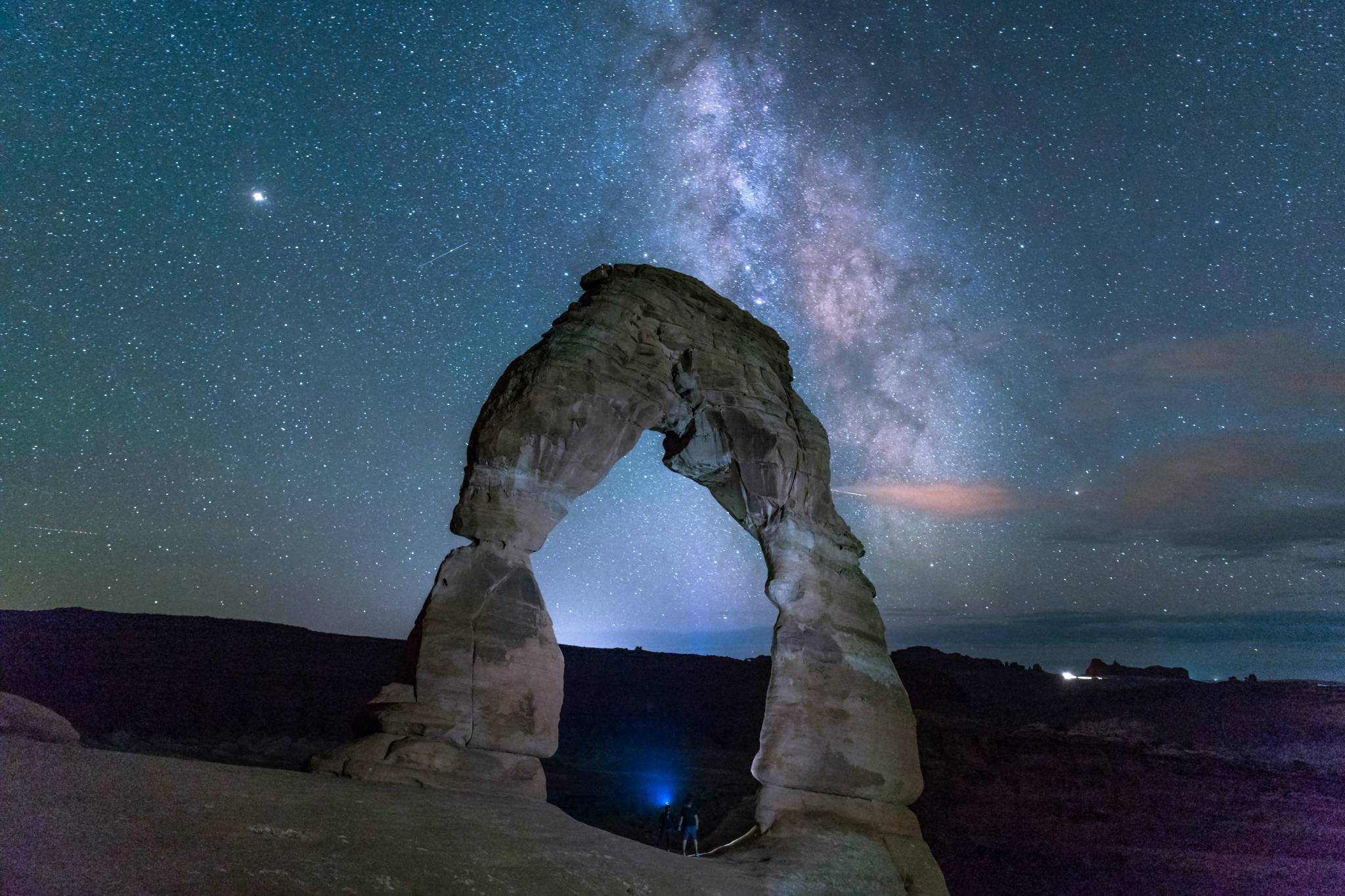By Dennis Hinkamp
For several months, social media has been filled with photos of colorful aurora flashes and comet tails. The varying quality of photos demonstrates the difficulty of finding ideal dark areas for astrophotography. Utah State University Extension offers a tool that can help find these dark areas.
According to Lisa Stoner, coordinator for the Colorado Plateau and Basin and Range Dark Sky Cooperatives, Utah is well-known for its exceptional dark sky viewing conditions due to the large percentage of undeveloped public land and dry climate. In fact, Utah has more accredited dark sky places than any other state in the country. The Dark Sky Passport, developed by USU Extension’s Institute of Outdoor Recreation and Tourism, can help find them.
“The Dark Sky Passport was designed to connect youth and their families to the cosmos through outdoor experiences at night,” Stoner said. “It provides a fun way to learn about the night sky and nocturnal environments through a series of activities, personal reflections, and stickers. These include passport stamps that can be placed on the pages dedicated to recording the passport holder’s experience with each dark sky place they visit.”
Stoner said the passport introduces the Bortle Scale, a tool for quantifying the darkness of the skies. Viewers can quickly see that the quality of a night sky varies depending on the amount of artificial light and its effect on the number of stars visible. The passport also includes a map showing Utah’s International Dark Sky Places.
“These are parks, communities, and sanctuaries recognized for their commitment to the protection and education around naturally dark night skies,” she said. “The commitment to protect the night from artificial light is a win-win for rural communities that want to maintain their historic appeal and also provide a healthier environment and world-class astrophotography opportunities – a perfect example of sustainable recreation and tourism.”
Because of these qualities, the Utah Office of Tourism (UOT) Destination Development Division also saw value in the Dark Sky Passport. The UOT provided the institute additional funds through a grant to cover printing costs for another 30,000 passports as a way to encourage travel itineraries that include dark-sky places.
“We are currently looking for partners with whom we can expand the program by building an educational curriculum around the Dark Sky Passport,” said Stoner.
For additional dark skies activities, contact Stoner at Lisa.Stoner@usu.edu to subscribe to the free Dark Sky Cooperative newsletter and/or to purchase a Dark Sky Passport for only $1 plus postage.

